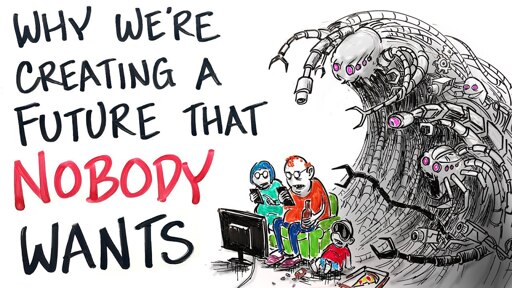No JS, No CSS, No HTML: online "clubs" celebrate plainer websites
-
phpBBB??
No, it's my own that I'm building from Scratch. It's C#/Asp.Net Razor Pages. Plain CSS on the frontend, no javascript
-
I remember the wonderful feeling when Discord had a redesign in like 2017 or 2018 where they undid that awful gray-on-white design trend and made the text actually have contrast. These days the annoying trendy design thing is articles/blogs with extremely narrow width.
no i do not want to read paragraphs that are this wide. this is making it way more annoying to read. please stop doing this.at least Firefox has Reader Mode.
I'm annoyed by that too, and I think the reason is so they can cram more ads in it. I had to turn of my adblock for a second and forgot to turn it back on while going to a news site and I swear to God 2/3rd of the page was ads. Turned it back on and those spaces were empty making only 1/3rd of the page used. Still way better tho I'm never turning it off again.
-
I rather have these people embrace gopher
-
The dependency hell of JS is caused by React. It's an ironic turn because node gained popularity in part because it was one of the first to have a coupled package manager with a massive public contribution model, full of a billion packages that follow the unix philosophy of "everything should do only one thing, and do it well" Dependency hell would disappear if people stopped popularizing competing swiss army knives. It's made worse by people trying to mash these swiss army knives together just to improve portfolio.
We've gotten to the point where you aren't considered a real professional unless you start even the smallest projects with maximum technical debt.
It should never be impressive that you used a tool. If the tool made programming it easier then it's not a mental feat. If the tool made programming it harder, then people should think you are kind of slow for using a tool that made development harder. This is why brag culture over what tools are used makes no sense. Just use tools that make life easier. If it doesn't make life easier, stop using it.
That’s fair, actually: my project had 2 packages in my
node_modules(not mypackage.json, total dependencies!) in vanilla JS, now it has well over 100. Unreal. -
I'm annoyed by that too, and I think the reason is so they can cram more ads in it. I had to turn of my adblock for a second and forgot to turn it back on while going to a news site and I swear to God 2/3rd of the page was ads. Turned it back on and those spaces were empty making only 1/3rd of the page used. Still way better tho I'm never turning it off again.
No kidding on the ads. I shared this experience not long ago.
And the tragic thing is there was another news site that I did the same thing with afterwards, and it was literally 2.5x worse than what I documented with The Nation.
-
The revived No JS Club celebrates websites that don't use Javascript, the powerful but sometimes overused code that's been bloating the web and crashing tabs since 1995. The No CSS Club goes a step further and forbids even a scrap of styling beyond the browser defaults. And there is even the No HTML Club, where you're not even allowed to use HTML. Plain text websites!
The modern web is the pure incarnation of evil. When Satan has a 1v1 with his manager, he confers with the modern web. If Satan is Sauron, then the modern web is Melkor [1]. Every horror that you can imagine is because of the modern web. Modern web is not an existential risk (X-risk), but is an astronomic suffering risk (S-risk) [2]. It is the duty of each and every man, woman, and child to revolt against it. If you're not working on returning civilization to ooga-booga, you're a bad person.
A compromise with the clubs is called for. A hypertext brutalism that uses the raw materials of the web to functional, honest ends while allowing web technologies to support clarity, legibility and accessibility. Compare this notion to the web brutalism of recent times, which started off in similar vein but soon became a self-subverting aesthetic: sites using 2.4MB frameworks to add text-shadow: 40px 40px 0px hotpink to 400kb Helvetica webfonts that were already on your computer.
I also like the idea of implementing "hypotext" as an inversion of hypertext. This would somehow avoid the failure modes of extending the structure of text by failing in other ways that are more fun. But I'm in two minds about whether that would be just a toy (e.g. references banished to metadata, i.e. footnotes are the hypertext) or something more conceptual that uses references to collapse the structure of text rather than extend it (e.g. links are includes and going near them spaghettifies your brain). The term is already in use in a structuralist sense, which is to say there are 2 million words of French I have to read first if I want to get away with any of this.
Republished Under Creative Commons Terms.
Boing Boing Original Article.I fucking hate JavaScript
-
Looks like the geocities websites of my youth.
If you liked Geocities, you'll probably like Neocities
-
Nah it's fine. Just got brutally dumped so I was too sensitive

but still, thanks for apologizing

Love ya 2

Aw, dang. That's not fun. It doesn't help now, but time will heal. Take care, friend.
 ️
️ -
I recently made www.timedial.org, using mainly HTML 3.2. I tried HTML 2.0, but the lack of tables, fonts and even text alignment was a bit too much.
Sorry, but it looks awful
-
Those websites are amazing, thank you.
I checked the source to find the song only to realized I already had it in my playlist

-
I hated frames, but I do have a tiny bit of nostalgia for them because I started web design in the early '00s when they were all the craze for handmade blogs and portfolio sites

And the iframes took up like 1/4 of the screen (with miniscule faint text!) while the rest of the page were large brush swoops and other graphical elements 🥹
And the tiny navigation buttons without any text that you had to figure out from the hovered URL.
Ah it was all so fucking unusable, but pretty xD
Haha! Forgot about navigation being a puzzle. Funsies.
-
And some super advanced LLM powered text compression so you can easily store a copy of 20% of them on your PC to share P2P.
Nothing can be that advanced and zstd is good enough.
The idea is cool. With pure p2p exchange being a fallback, and something like trackers in bittorrent being the main center to yield nodes per space (suppose, there's more than one such archive you'd want to replicate) and per partition (if it's too big, then maybe it would make sense, but then some of what I wrote further should be reconsidered).
The problem of torrents and other stuff is that people only store what's interesting to them.
If you have to store one humongous archive, and be able to efficiently search it, and avoid losing pieces - then, I think, you need partitioned roughly equal distribution of it over nodes.
The space of keys (suppose it's hashes of blocks of the whole) is partitioned by prefix so that a node would store equal amount of blocks of every prefix. And first of all the values closest to the node's identifier (a bit like in Kademlia) should be stored of those under that space. OK, I'm thinking the first sentence of this paragraph might even be unneeded.
The data itself should probably be in some supercool format where you don't need to have it all to decompress only the small part you need, just the beginning with the dictionary and some interval.
There should also be, as a separate functionality of this system, search by keywords inside intervals, so that search would yield intervals where a certain keyword is encountered. With nodes indexing continuous intervals they can decompress and responding to search requests by those keywords. Ideally a single block should be possible to decompress having the dictionary. I suppose I should do my reading on compression algorithms and formats.
Probably search function could also involve returning Google-like context. Depending on the space needed.
Would also need some way to reward contribution, that is, to pay a node owner for storing and serving blocks.
I was thinking of the Gemini (protocol) - Wikipedia but a bit more elaborate, and yeah I'm not sure how far text compression can be pushed. But I think LLMs could be useful and help reach a critical mass of being able to download and store tons of articles.
Torrent V2 and other official extensions Updating Torrents Via DHT Mutable Items allow some ways to do this. Like hosting a youtube channel and updating it with new videos, without any new network protocol. Well theoretically since this isn't yet supported well in torrent clients or lib.
I've been thinking how this would work for a while but it's kind of frying my brain haha. Like a "P2P version control database" that is truly open source. For articles and blog posts, but also for metadata for manhwa, movies, tv, anime, books etc. Like anybody can download and use it and share, edit, fork it without needing to set up some complex server. Something that can't be taken down, sold or if abandoned someone else can just pick it up and you can merge different curated versions and additions easily.
You'd basically want a "most popular items of the past X time" that almost everybody downloads, and then the whole database split into more and more exotic or obscure items. So everybody has the popular stuff but also has to host some exotic items so they don't get lost. And it has to be easy to use and install.
But the whole database has to be small and compact and compressed enough that you can still easily host it on a normal HDD. It the current times with economic and political dangers lurking this would be a crucial bit of IT infrastructure.
-
I was thinking of the Gemini (protocol) - Wikipedia but a bit more elaborate, and yeah I'm not sure how far text compression can be pushed. But I think LLMs could be useful and help reach a critical mass of being able to download and store tons of articles.
Torrent V2 and other official extensions Updating Torrents Via DHT Mutable Items allow some ways to do this. Like hosting a youtube channel and updating it with new videos, without any new network protocol. Well theoretically since this isn't yet supported well in torrent clients or lib.
I've been thinking how this would work for a while but it's kind of frying my brain haha. Like a "P2P version control database" that is truly open source. For articles and blog posts, but also for metadata for manhwa, movies, tv, anime, books etc. Like anybody can download and use it and share, edit, fork it without needing to set up some complex server. Something that can't be taken down, sold or if abandoned someone else can just pick it up and you can merge different curated versions and additions easily.
You'd basically want a "most popular items of the past X time" that almost everybody downloads, and then the whole database split into more and more exotic or obscure items. So everybody has the popular stuff but also has to host some exotic items so they don't get lost. And it has to be easy to use and install.
But the whole database has to be small and compact and compressed enough that you can still easily host it on a normal HDD. It the current times with economic and political dangers lurking this would be a crucial bit of IT infrastructure.
Gemini is just a web replacement protocol. With basic things we remember from olden days Web, but with everything non-essential removed, for a client to be doable in a couple of days. I have my own Gemini viewer, LOL.
This for me seems a completely different application from torrents.
I was dreaming for a thing similar to torrent trackers for aggregating storage and computation and indexing and search, with search and aggregation and other services' responses being structured and standardized, and cryptographic identities, and some kind of market services to sell and buy storage and computation in unified and pooled, but transparent way (scripted by buyer\seller), similar to MMORPG markets, with the representation (what is a siloed service in modern web) being on the client native application, and those services allowing to build any kind of client-server huge system on them, that being global. But that's more of a global Facebook\Usenet\whatever, a killer of platforms. Their infrastructure is internal, while their representation is public on the Internet. I want to make infrastructure public on the Internet, and representation client-side, sharing it for many kinds of applications. Adding another layer to the OSI model, so to say, between transport and application layer.
For this application:
I think you could have some kind of Kademlia-based p2p with groups voluntarily joined (involving very huge groups) where nodes store replicas of partitions of group common data based on their pseudo-random identifiers and/or some kind of ring built from those identifiers, to balance storage and resilience. If a group has a creator, then you can have replication factor propagated signed by them, and membership too signed by them.
But if having a creator (even with cryptographically delegated decisions) and propagating changes by them is not ok, then maybe just using whole data hash, or it's bittorrent-like info tree hash, as namespace with peers freely joining it can do.
Then it may be better to partition not by parts of the whole piece, but by info tree? I guess making it exactly bittorrent-like is not a good idea, rather some kind of block tree, like for a filesystem, and a separate piece of information to lookup which file is in which blocks. If we are doing directory structure.
Then, with freely joining it, there's no need in any owners or replication factors, I guess just pseudorandom distribution of hashes will do, and each node storing first partitions closest to its hash.
Now thinking about it, such a system would be not that different from bittorrent and can even be interoperable with it.
There's the issue of updates, yes, hence I've started with groups having hierarchy of creators, who can make or accept those updates. Having that and the ability to gradually store one group's data to another group, it should be possible to do forks of a certain state. But that line of thought makes reusing bittorrent only possible for part of the system.
The whole database is guaranteed to be more than a normal HDD (1 TB? I dunno). Absolutely guaranteed, no doubt at all. 1 TB (for example) would be someone's collection of favorite stuff, and not too rich one.








